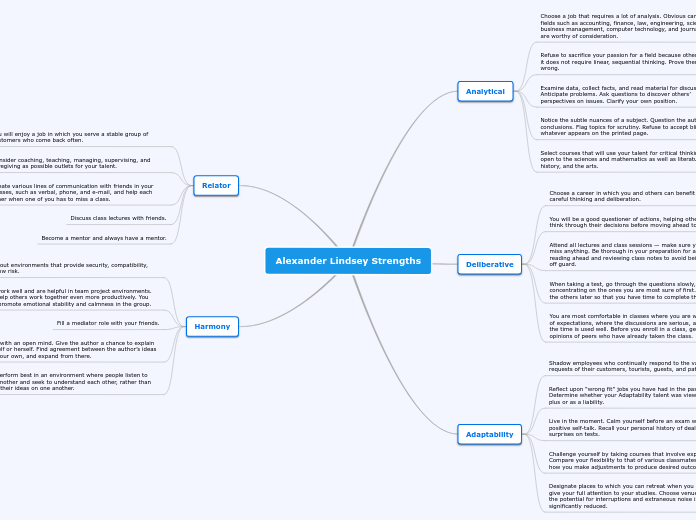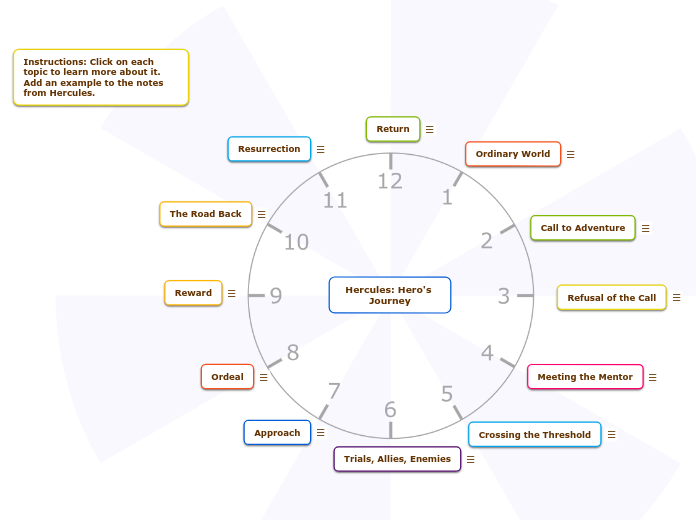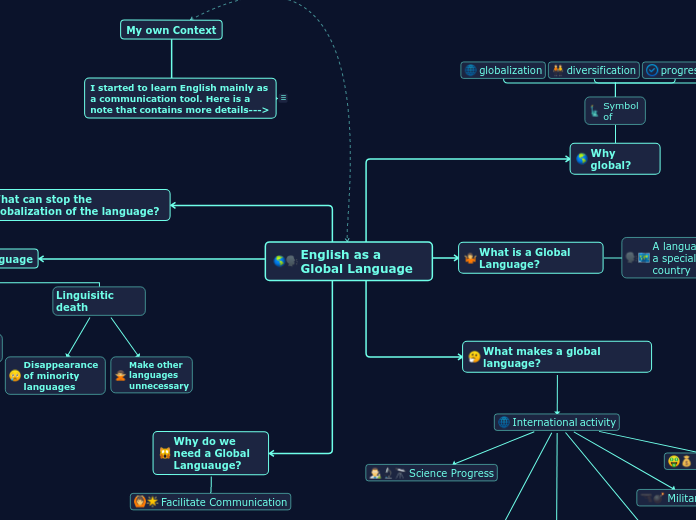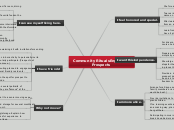door Alexander Lindsey 5 jaren geleden
146
Alexander Lindsey Strengths
Alexander Lindsey excels in environments where harmony and mutual understanding are prevalent. He thrives as a mediator, fostering emotional stability and calmness within teams and helping others collaborate productively.









